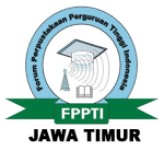Motivation and Awareness of Institutional Repositories by Students of Yogyakarta Islamic University of Yogyakarta and Yogyakarta State University
Downloads
Background of the study: Institutional repositories are considered as one of the appropriate tools used by universities to store, preserve, and disseminate the scientific work of students and lecturers. Open access to institutional repositories allows students to access scientific works openly and they can get more complete parts of the work. However, there is another side of the institutional repository that has not received much attention, namely motivation and awareness about institutional repositories. Supported by data on student access to very high institutional repositories, this research was conducted at two universities in Yogyakarta, UII, and UNY.
Purpose: This study aims to find out what motivations UII and UNY students to use institutional repositories and what is the awareness of UII and UNY students about institutional repositories.
Method: The method used is qualitative with data collection techniques in the form of interviews with six UII and UNY students obtained based on snowball sampling techniques.
Findings: The main motivation of UII students to use institutional repositories is to obtain references while the motivation of UNY students is because the institutional repositories are easy to use tools. In terms of awareness, UII and UNY students have a different awareness about institutional repositories which lie in knowledge, semester, understanding, medium, and willingness to store academic work in institutional repositories.
Conclusion: Motivation and awareness are the two main keys that students must possess to succeed in the sustainability of the institution's repository.
Downloads
Abrizah, A., Noorhidawati, A., & Kiran, K. (2010). Global visibility of Asian universities open access institutional repositories. Malaysian Journal of Library & Information Science, 15(3), 53-73. Diakses dari https://jice.um.edu.my/index.php/MJLIS/article/view/6942
Alemayehu, M.W. (2010). Researchers attitude to using institutional repositories: A case study of the Oslo University Institutional Repository (DUO). (Master Thesis, Oslo University College, Oslo). Diakses dari https://oda.hioa.no/en/researchers-attitude-to-using-institutional-repositories-a-case-study-of-the-oslo-university-institutional-repository-duo/asset/dspace:1228/Alemayehu_MulukenWubayehu.pdf
Anggito, A., & Setiawan, J. (2018). Metodologi penelitian kualitatif. Diakses dari https://books.google.co.id/books?id=59V8DwAAQBAJ&printsec=frontcover&dq=Metodologi+penelitian+kualitatif+Anggito&hl=id&sa=X&ved=0ahUKEwjnhK-JmeXhAhVT63MBHU7GCB0Q6AEIKDAA#v=onepage&q=Metodologi%20penelitian%20kualitatif%20Anggito&f=false
Awareness. (2019). Merriam-webster online dictionary. Diakses dari https://www.merriam-webster.com/dictionary/awareness
Bamigbola, A.A. (2014). Surveying attitude and use of institutional repositories (IRs) by faculty in agriculture disciplines: A case study. Procedia Social and Behavioural Sciences, 147, 505-509. doi: 10.1016/j.sbspro.2014.07.145
Barwick, J., & Pickton, M. (2006). A librarian's guide to institutional repositories. Elucidate, 3(2), 3-9. Diakses dari https://dspace.lboro.ac.uk/dspace-jspui/handle/2134/1122
Campbell, J. M. (2011). A framework for institutional repository development. Library Administration and Organizations, 30, 151-185. doi:10.1108/S0732-0671(2011)0000030006
Chodjim, A. (2004). Annas: Segarkan jiwa dengan surah manusia. Diakses dari https://books.google.co.id/books?id=WkRj_TuheFwC&printsec=frontcover&hl=id#v=onepage&q&f=false
Cullen, R., & Chawner, B. (2010). Institutional repositories: Assessing their value to the academic community. Performance Measurement and Metrics, 11(2), 131-147. doi: 10.1108/14678041011064052
Cullen, R., & Chawner, B. (2011). Institutional repositories, open access, and scholarly communication: A study of conflicting paradigms. Journal of Academic Librarianship, 37(6), 460-470. doi: 10.1016/j.acalib.2011.07.002
De Silva, P.U.K., & Vance, C.K. (2017). Scientific scholarly communication: The changing Landscape. doi: 10.1007/978-3-319-50627-2
Dolan, M. (2011). Assessing awareness of repositories and the open access movement among ETD faculty advisors. Proceedings of the 14th International Symposium on Electronic Theses Dissertations (pp 13-17). Cape Town, South Africa. Diakses dari http://dl.cs.uct.ac.za/conferences/etd2011/papers/etd2011_dolan.pdf
Dutta, G., & Paul, D. (2014). Awareness on institutional repositories related issues by faculty of University of Calcutta. Journal of Library & Information Technology, 34(4), 293-297. doi: 10.14429/djlit.34.5138
Eloquence, et.al. (n.d). Motivation. Diakses dari https://www.basicknowledge101.com/pdf/control/Motivation.pdf
Feltman, R., & Elliot, A.J (2012). Approach and avoidance motivation. Encyclopedia of the Science of Learning (pp. 286-288). doi: https://doi.org/10.1007/978-1-4419-1428-6_1749
Gurov, A. N., Goncharova, Y.G., & Bubyakin, G.B. (2016). Open access to scientific knowledge: It's state, problems, and prospects of development. Scientific and Technical Information Processing, 43(2), 88-94.doi: 10.3103/S0147688216020040
Latuconsina, H. (2014). Pendidikan kreatif: Menuju generasi kreatif dan kemajuan ekonomi kreatif di Indonesia. Diakses dari https://books.google.co.id/books?id=4KBLDwAAQBAJ&printsec=frontcover&hl=id#v=onepage&q&f=false
Legault, L. (2016). Intrinsic and Extrinsic Motivation. Encyclopedia of Personality and Individual Differences (pp. 1-4). doi: 10.1007/978-3-319-28099-8_1139-1
Liauw, T.T. (2013). Open access dan perguruan tinggi Indonesia. In J. G. Sujana & B. Mustafa (Eds.), Perpustakaan Indonesia menghadapi era open access (pp. 52). Bogor, Indonesia: Perpustakaan Institut Pertanian Bogor.
Low, R., & Jin, P. (2012). Achievement motivation and learning. Encyclopedia of the Science of Learning, (pp. 47-51). doi: 10.1007/978-1-4419-1428-6_199
Manchu O., & Vasudevan T M. (2018). Awareness of institutional repositories and open access publishing among researchers in University of Calicut. International Research Journal of Library & Information Science, 8(1), 43-51. Diakses dari http://irjlis.com/awareness-of-institutional-repositories-and-open-access-publishing-among-researchers-in-university-of-calicut/
Merugu, R. K. (2015). Knowledge Management: Role and importance of institutional repository. International Journal of Next Generation Library and Technology, 1 (1), 1-5. Diakses dari http://www.ijnglt.com/files/Article%20on%20Knowledge%20Management%20by%20Ravi%20Kumar%20Merugu.docx.
Opendoar. (2019). Browse by Country and Region. Diakses dari http://v2.sherpa.ac.uk/view/repository_by_country/id.html
Paul, M., & Basu, A. (2015). A study on open access in Indonesia. International Journal of Library Science and Research, 5(4), 11-20. Diakses dari https://www.researchgate.net/profile/Anindya_Basu2/publication/281113258_A_Study_on_Open_Access_In_Indonesia/links/55d68d8408aec156b9a8655a/A-Study-on-Open-Access-In-Indonesia.pdf?origin=publication_detail
Parnawi, A. (2019). Psikologi Belajar. Diakses dari https://books.google.co.id/books?id=BA-fDwAAQBAJ&printsec=frontcover&hl=id#v=onepage&q&f=false
Pawito. (2007). Penelitian komunikasi kualitatif. Diakses dari https://books.google.co.id/books?id=zN5iDwAAQBAJ&printsec=frontcover&dq=Penelitian+komunikasi+kualitatif+Pawito&hl=id&sa=X&ved=0ahUKEwjw8qrm1-fhAhUJdCsKHUsxBeAQ6AEIKDAA#v=onepage&q=Penelitian%20komunikasi%20kualitatif%20Pawito&f=false
Pinfield, S. (2009). Journals and repositories: An evolving relationship. Learned Publishing, 22(3), 165-175. doi:10.1087/2009302
Prabhakar, S. V. R., & Rani, S. V. M. (2018). Benefits and perspectives of institutional repositories in academic libraries. Scholarly Research Journal for Humanity science & English Language, 5(25), 6904-6909. Diakses dari http://oaji.net/articles/2017/1201-1529139900.pdf
Prosser, D. C. (2004). The next information revolution: How open access repositories and journals will transform scholarly communications. Liber Quarterly, 14, 23-36. Diakses dari https://www.liberquarterly.eu/articles/10.18352/lq.7755/
Ratanya, F. C. (2017). Institutional repositories: Access and use by academic staff at Egerton University Kenya. Library Management, 38(4/5), 276-284. doi: 10.1108/LM-02-2017-0018
Reinhardt, W., Mletzko, C., Sloep, P. B., & Drachsler, H. (2012). Understanding the meaning of awareness in Research Networks. In A. Moore, V. Pammer, L. Pannese, M. Prilla, K. Rajagopal, W. Reinhardt, Th. D. Ullman, & Ch. Voigt (Eds.), Proceedings of the 2nd Workshop on Awareness and Reflection in Technology Enhanced Learning. In conjunction with the 7th European Conference on Technology Enhanced Learning: 21st Century Learning for 21st Century Skills (ARTEL/EC-TEL 2012) (pp. 13-30). Saarbrucken, Germany. Diakses dari https://www.semanticscholar.org/paper/Understanding-the-Meaning-of-Awareness-in-Research-Reinhardt-Mletzko/d8c6b9b0ec5c06f4c51edec2d96d264bff469d77
Richardson, J., & Wolski, M. (2012). The importance of repositories in supporting the learning lifecycle. ICERI Conference Madrid, Spanyol, 2602-2608. Diakses dari https://core.ac.uk/download/pdf/143879521.pdf
Ryan, R.M., & Deci, E.L. (2000). Intrinsic and extrinsic motivations: Classic definitions and new directions. Contemporary Eductional Psychology, 25, 54-67. doi:10.1006/ceps.1999.1020
Scheufen, M. (2015). Copyright versus open access: On the organisation and international political economy of access to scientific knowledge. doi: 10.1007/978-3-319-12739-2
Seo, Jeong-wook et al. (2017, Juni). Equality, equity, and reality of open access on scholarly information. Paper dipresentasikan di Korea OECD Workshop on Open Science & Asian Science Editors Conference and Workshop, Vietnam. Diakses dari https://www.escienceediting.org/journal/view.php?number=102
Spezi, et.al. (2013). Researchers green open access practice: A cross disciplinary analysis. Journal of Documentation, 69(3), 334-359. doi: 10.1108/JD-01-2012-0008
Tedd, L.A. (2009). Open access publishing and instutional repositories: An overview. Dipresentasikan di 7th International CALIBER: Puducherry, India. Diakses dari https://www.inflibnet.ac.in/caliber2009/CaliberPDF/71.pdf
UNESCO. (2015). Introduction to open access. Diakses dari https://unesdoc.unesco.org/in/rest/annotationSVC/DownloadWatermarkedAttachment/attach_import_e21acac8-1e56-4950-ad9b-797305879377?_=231920eng.pdf
Usher, E.L., & Morris, D.B (2012). Academic motivation. Encyclopedia of the Science of Learning (pp. 36-39). doi:10.1007/978-1-4419-1428-6_834
Yang, Z. Y., & Li, Y. (2015). University faculty awareness and attitude towards open access publishing and the institutional repository: A case study. Journal of Librianship and Scholarly Communication, 3(1), 1-29. doi: 10.7710/2162-3309.1210
Yusuf, M. (2014). Metode penelitian: Kuantitatif, kualitatif, dan penelitian gabungan. Diakses dari https://books.google.co.id/books?id=RnA-DwAAQBAJ&printsec=frontcover&dq=Metode+penelitian:+Kuantitatif,+kualitatif,+dan+penelitian++yusuf&hl=id&sa=X&ved=0ahUKEwjJiLPY6OfhAhXc7HMBHUQ-DrYQ6AEIKDAA#v=onepage&q=Metode%20penelitian%3A%20Kuantitatif%2C%20kualitatif%2C%20dan%20penelitian%20%20yusuf&f=false
Zeman, A. (2001). Consciousness. Brain: A Journal of Neurology, 124(7), 1263-1289. doi:10.1093/brain/124.7.1263
Record and Library Journal by Unair is licensed under a Creative Commons Attribution-ShareAlike 4.0 International License.
1. The journal allows the author to hold the copyright of the article without restrictions.
2. The journal allows the author(s) to retain publishing rights without restrictions
3. The legal formal aspect of journal publication accessibility refers to Creative Commons Attribution Share-Alike (CC BY-SA).
4. The Creative Commons Attribution Share-Alike (CC BY-SA) license allows re-distribution and re-use of a licensed work on the conditions that the creator is appropriately credited and that any derivative work is made available under "the same, similar or a compatible license”. Other than the conditions mentioned above, the editorial board is not responsible for copyright violation.




























